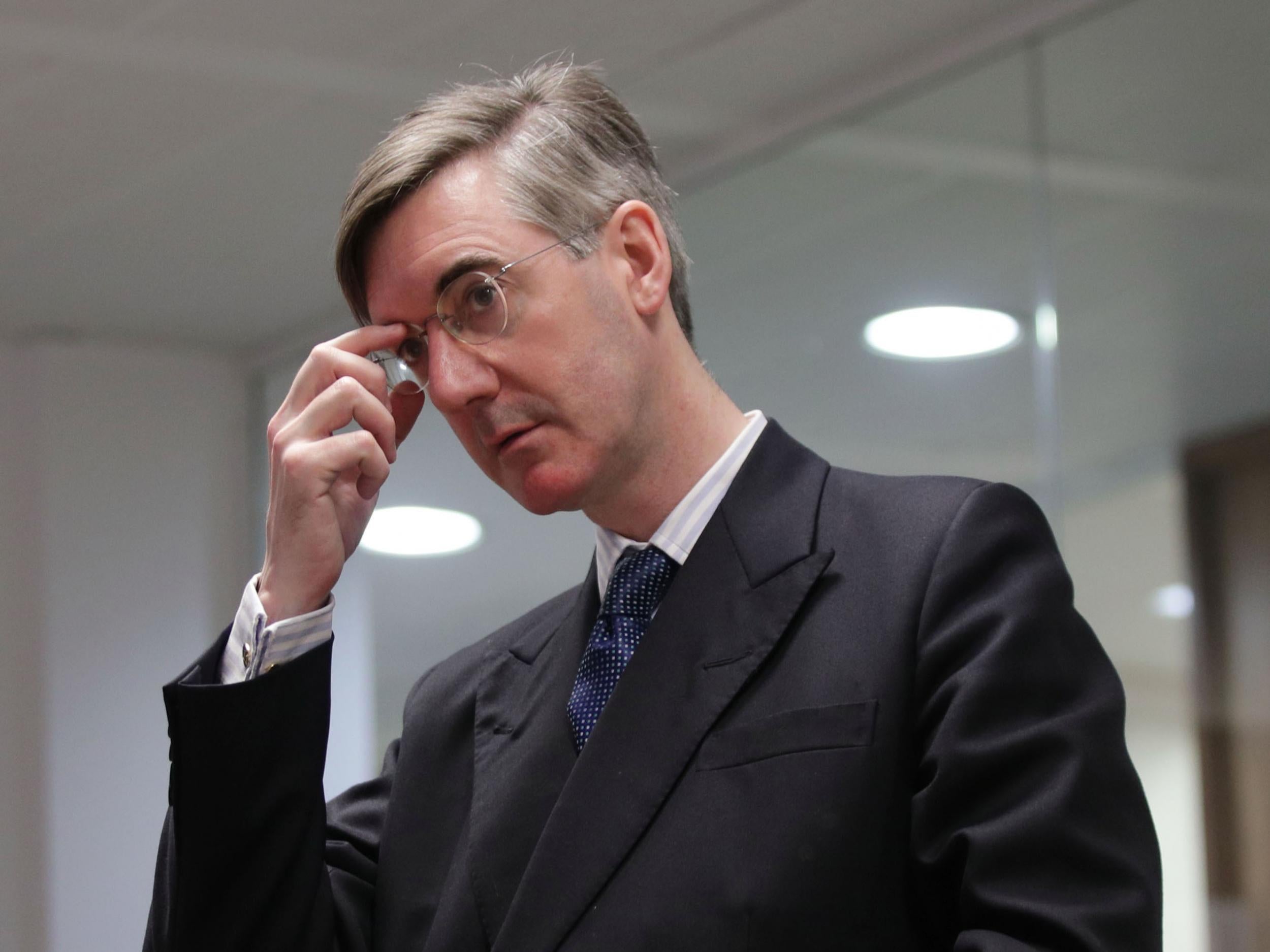Brexit: Jacob Rees-Mogg hits out at 'poor' Government plan for transition period
The Conservative MP leads an influential group of backbench Tory MPs who are pushing for a cleaner break from the EU

Your support helps us to tell the story
From reproductive rights to climate change to Big Tech, The Independent is on the ground when the story is developing. Whether it's investigating the financials of Elon Musk's pro-Trump PAC or producing our latest documentary, 'The A Word', which shines a light on the American women fighting for reproductive rights, we know how important it is to parse out the facts from the messaging.
At such a critical moment in US history, we need reporters on the ground. Your donation allows us to keep sending journalists to speak to both sides of the story.
The Independent is trusted by Americans across the entire political spectrum. And unlike many other quality news outlets, we choose not to lock Americans out of our reporting and analysis with paywalls. We believe quality journalism should be available to everyone, paid for by those who can afford it.
Your support makes all the difference.Prominent Conservative backbencher Jacob Rees-Mogg has dismissed a government document setting out the UK’s approach to its transition out of the EU as a “poor piece of work”.
Mr Rees-Mogg, who backs a harder Brexit, attacked the document after it appeared to open the way for a transition longer than the 21 months set out by the European Union.
He and other right wingers on the Tory benches are already angry that the current terms of the transition appear to maintain the conditions of the UK’s EU membership and want the period kept as short as possible.
The Government’s plan for the transition was leaked shortly before being published on Wednesday, with some ministers later claiming privately that they were not consulted on it.
Writing in The Telegraph today, Mr Rees-Mogg said of the document: “This appears to be a poor piece of work.
“It has been disowned by ministers as not representing government policy. Transition must be time limited. The EU suggests 21 months, it is peculiar that the leak reveals Whitehall proposing the opposite.”
On Thursday The Independent revealed that Britain could also be forced to pay more for its Brexit divorce bill if it tries to elongate the period after March 2019 to have more time to prepare for EU withdrawal.
Mr Rees-Mogg went on: “There is also no mention of the ability to apply immigration controls. Concern over lost control over migration was a significant issue in the referendum. Whoever compiled this document proposes no changes to it for an indefinite period and would thereby let down millions of voters.”
What happens to EU citizens’ rights is a key point of conflict over the transition period, with Brussels wanting those arriving in the UK after March 2019 to keep the same rights as those coming before and Theresa May insisting they should be treated differently.
Ms May has consistently said that the transition period – or “implementation period” as she calls it – should be around two years and not be indefinite.
But in an explanatory note to go along with its official plan for the period, UK negotiators said: “The UK believes the period’s duration should be determined simply by how long it will take to prepare and implement the new processes and new systems that will underpin the future partnership.
“The UK agrees this points to a period of around two years, but wishes to discuss with the EU the assessment that supports its proposed end date.”
In a proposed amendment to the transition agreement – which is currently being pored over by negotiators on both sides – the UK has bracketed out 31 December 2020, which was the EU’s suggested finish point.
Notably, some previously voiced British concerns about the nature of the transition, including the application of free movement to EU citizens who come to the UK during it, are absent from the document – potentially suggesting the UK may be softening its opposition to the other terms presented by the EU.
The development on the end date confirms reports by The Independent last month that the UK was considering asking for a longer period because it was not sure that the duration proposed by Brussels would give it enough time to prepare.
Depending on the future trade deal struck with Brussels the UK might have to significantly overhaul the physical infrastructure of its ports and airports to cope with a dramatic increase in customs checks, as well as do other work that has yet to actually begin nearly two years after the referendum.
The transition is highly controversial with Conservative Brexiteers, who say that it amounts to making Britain a “vassal state” of the EU where it would follow EU rules without having any say over what they were. Brexit Secretary David Davis has however said the period is a “bridge to the future” and only amounts to a “short period” in the EU’s orbit.
Brexit minister Steve Baker said on Wednesday: “You can see that they want us to exit at the end of the budget period, the Prime Minister is suggesting two years. But what will be the case is, when we’ve agreed, there will be a fixed date.”
Join our commenting forum
Join thought-provoking conversations, follow other Independent readers and see their replies
Comments